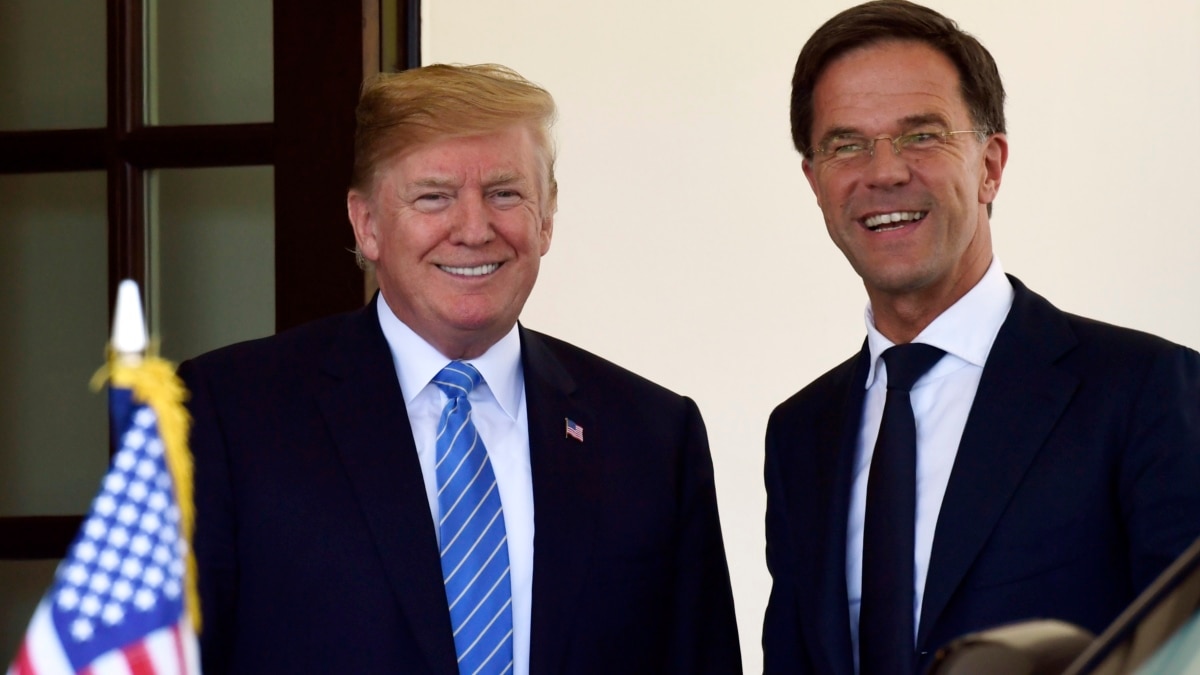Dutch Unlikely To Support EU Retaliation Against Trump Import Duties

Table of Contents
Economic Dependence and Transatlantic Ties
The Netherlands boasts significant economic ties with the United States, making it a key player in the ongoing transatlantic trade debate. These strong connections influence the country's cautious approach to retaliatory tariffs. Substantial American investment and robust trade in key sectors create a delicate balancing act for the Dutch government. Retaliatory tariffs risk damaging these crucial relationships, leading to potential economic repercussions.
- High levels of US foreign direct investment in the Netherlands: American companies have established a significant presence in the Netherlands, contributing substantially to the Dutch economy and employment.
- Significant Dutch exports to the US market: The Netherlands exports a substantial amount of goods to the US, particularly in agricultural products and high-tech sectors. Imposing retaliatory tariffs could severely impact these exports.
- Concerns about potential negative impacts on Dutch businesses and employment: The Dutch government is acutely aware of the potential job losses and economic slowdown that could result from a trade war.
- Strong historical and diplomatic ties between the Netherlands and the US: The long-standing relationship between the two nations plays a significant role in shaping the Dutch government's approach to trade disputes. This deep-rooted connection often takes precedence over immediate economic gains.
Internal EU Divisions on Trade Policy
The EU's response to Trump's tariffs reveals deep internal divisions on the optimal approach. While some member states advocate for robust retaliation, aiming for a strong unified front against protectionist measures, others, like the Netherlands, prioritize maintaining economic stability and preserving transatlantic relations. This divergence in opinions reflects the complex interplay of national interests within the EU's Common Commercial Policy.
- Differing economic interests among EU member states: The level of economic dependence on US trade varies significantly across the EU, leading to diverse perspectives on retaliatory measures.
- Varying levels of dependence on US trade: Some countries are far more exposed to the US market than others, making them more hesitant to engage in trade wars.
- Debates within the European Council regarding the effectiveness of retaliatory measures: The European Council grapples with the potential inefficiencies and unintended consequences of imposing retaliatory tariffs.
- Potential for fracturing the EU's united front on trade issues: Disagreements on trade policy could weaken the EU's overall bargaining power and its ability to address future trade disputes.
The Dutch Government's Stance
The Dutch government's official stance reflects its prioritization of economic stability and transatlantic ties over immediate retaliation against Trump's import duties. This position stems from a pragmatic assessment of the potential economic costs associated with a trade war and the importance of maintaining strong relationships with the United States. Analysis of official statements from Dutch ministers and officials reveals a consistent emphasis on diplomatic solutions and finding compromises with the US administration.
- Public statements from relevant Dutch ministers and officials: These statements consistently highlight the importance of economic collaboration and maintaining strong relations with the United States.
- Analysis of the Dutch government's trade policy strategy: This strategy emphasizes negotiation and compromise rather than aggressive confrontation in the face of trade disputes.
- Potential political ramifications of supporting or opposing EU retaliatory measures: The Dutch government is likely mindful of the political consequences of either supporting or opposing the EU's retaliatory measures.
Potential Alternatives to Retaliation
The Netherlands likely favors alternative strategies that prioritize economic cooperation and conflict resolution over aggressive retaliation against the US import duties. Instead of escalating the trade war, the Dutch government may advocate for less confrontational approaches to resolving the trade dispute.
- Emphasis on negotiating favorable trade agreements: The Netherlands may push for a renewed emphasis on negotiating mutually beneficial trade agreements with the United States.
- Utilizing the World Trade Organization's dispute settlement system: The WTO provides a framework for resolving trade disputes through established legal processes, potentially offering a less confrontational avenue.
- Exploring the possibility of bilateral negotiations with the US: Bilateral discussions may offer a platform to address specific concerns and reach tailored solutions.
- Prioritizing maintaining positive relations with the US: This approach avoids jeopardizing critical economic and diplomatic ties.
Conclusion
The Netherlands' hesitancy to support EU retaliation against Trump's import duties underscores significant internal divisions within the EU on trade policy. The Dutch government's stance, driven by strong economic ties with the US and a pragmatic approach to conflict resolution, highlights the complexities of navigating transatlantic trade relations. This reluctance potentially weakens the EU's overall response and underscores the need for a more nuanced, potentially multilateral, approach to resolving trade disputes.
Call to Action: Understanding the Dutch perspective on the EU's response to Trump's import duties is crucial for comprehending the future direction of transatlantic trade relations. Further research into the economic and political implications of this stance is essential for effective trade policy planning and for navigating the complexities of the ongoing trade disputes between the EU and the US. Continue to follow developments on the Dutch position on EU retaliation against Trump import duties to stay informed about this evolving situation and its impact on global trade.

Featured Posts
-
 Review Of The Best Bitcoin Casinos Launching In 2025
May 18, 2025
Review Of The Best Bitcoin Casinos Launching In 2025
May 18, 2025 -
 Uber Stock And Recession Why Analysts Remain Bullish
May 18, 2025
Uber Stock And Recession Why Analysts Remain Bullish
May 18, 2025 -
 Bowen Yang Speaks Out Was Ego Nwodims Snl Sketch Risky
May 18, 2025
Bowen Yang Speaks Out Was Ego Nwodims Snl Sketch Risky
May 18, 2025 -
 Assessing The Future Indias Relationship With Pakistan Turkey And Azerbaijan
May 18, 2025
Assessing The Future Indias Relationship With Pakistan Turkey And Azerbaijan
May 18, 2025 -
 Alcaraz Y Su Alegria En Montecarlo Analisis Del Torneo
May 18, 2025
Alcaraz Y Su Alegria En Montecarlo Analisis Del Torneo
May 18, 2025
